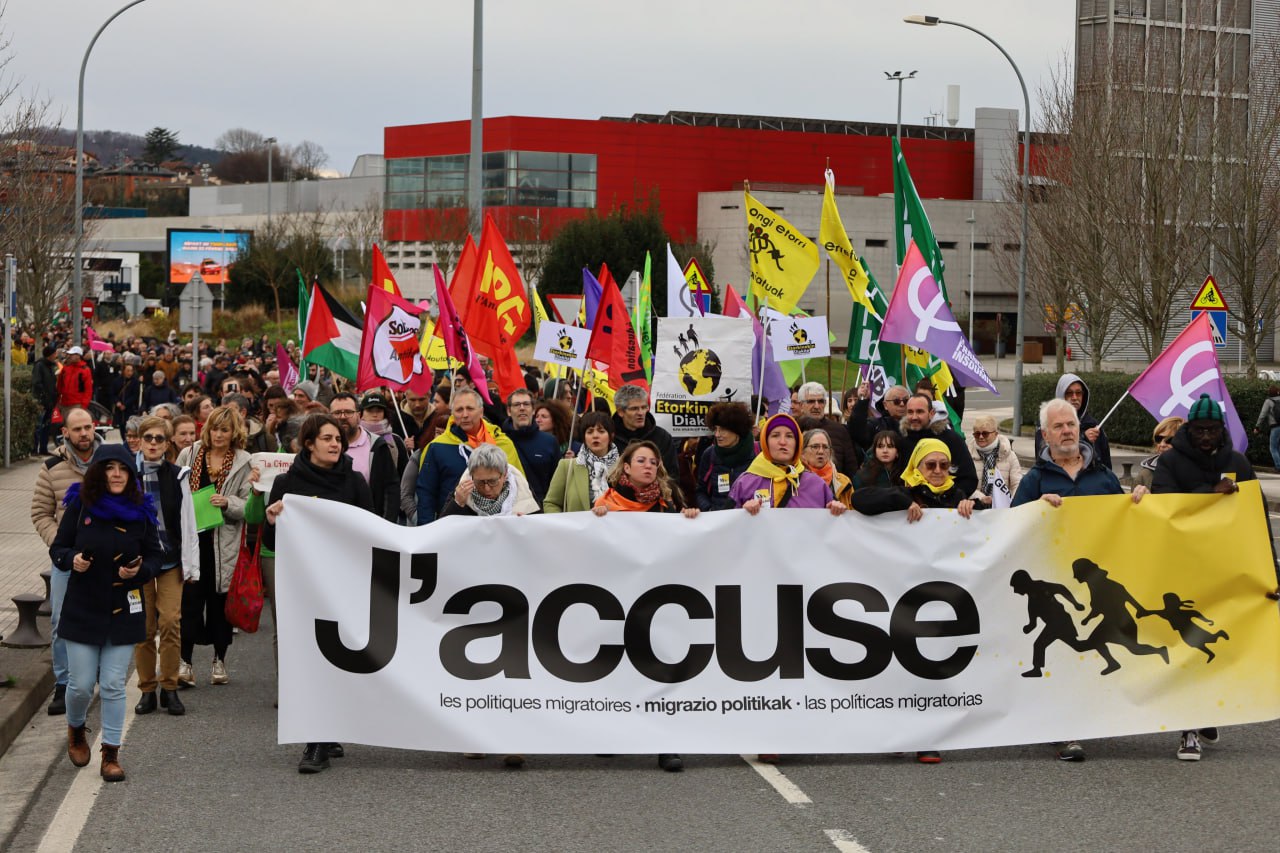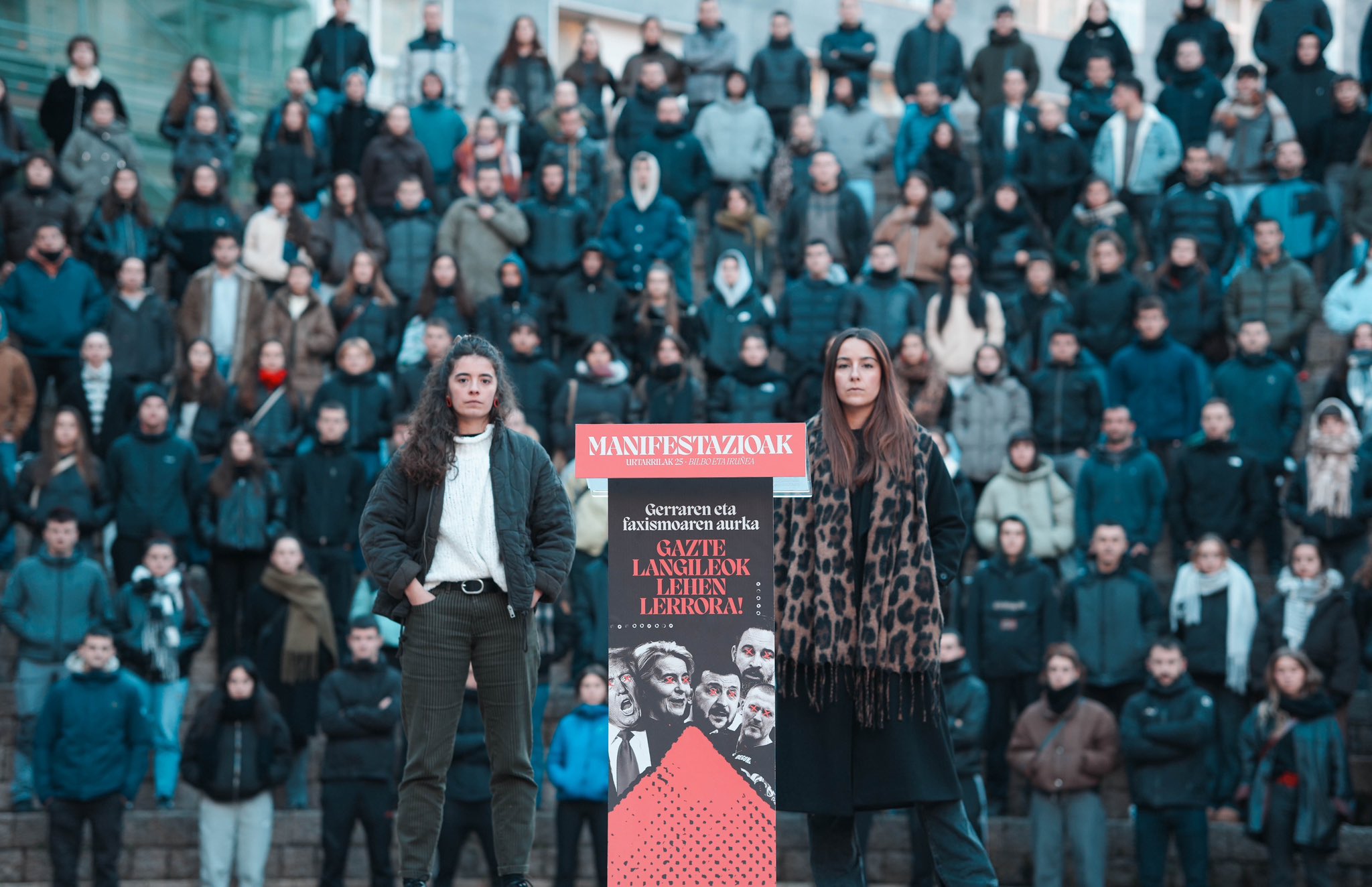Space for the mutual strengthening of popular movements
- Zubieta has become this weekend the plaza of the Gipuzkoan citizenship that fights for a model of society and the participation of numerous social movements in the Basque Country. The Camp of the Small Revolutions, convened by the Free Territory of the Basque Country Collective, has been held.
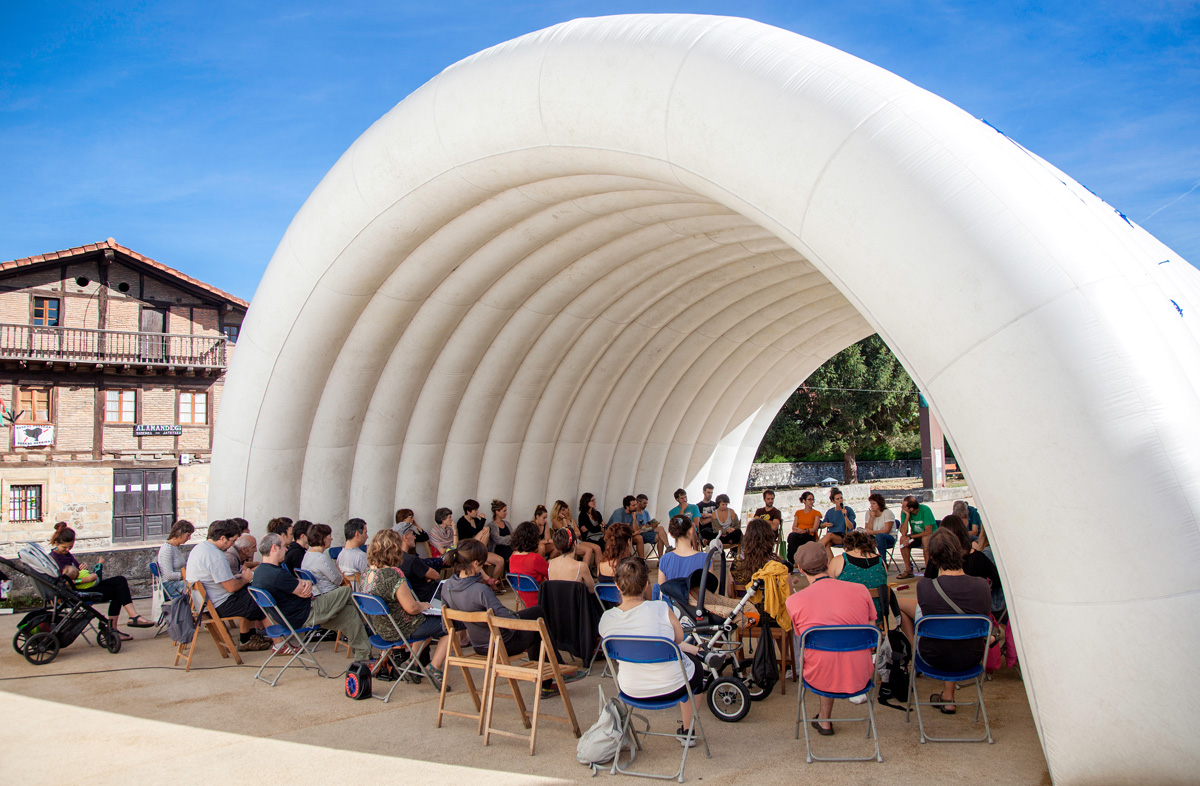
The Small Revolutions Camp has landed this weekend in Zubieta, a town invaded by the institutions, not only with the incinerator and macro-prison, but also under the threat of a new military barracks. The project is organized by the Free Territory community, which is defined as “a small group of people who share the Basque republic of good living”, along with other agents of popular construction.
Zubieta's camp has aimed that the people fighting in the popular movements of the Basque Country get to know each other and integrate with each other, focusing on the collectivization of knowledge, needs and strategies. Thus, citizens of different counties and of very different militant origin have gathered. “In recent years it has been noted that in Euskal Herria there are popular movements that move towards the construction of alternatives to capitalism and patriarchy, but it seems that they are rather atomized. This camp was an attempt to enclose these groups,” explained Irati Tobar, one of the organizers of the Eguzkitza camp. For three days, Zubieta has tried to become an anti-patriarchal, anti-capitalist, community, auterized, self-critical, wrestling and joyful space. “It has been an experiment and we have seen that it has been very welcome. We wanted to gather the sensations of the peers who are engaged in different popular movements and struggles, and we know that we have created a network of contacts. That doesn’t mean that the community that will wager on another model is fully constituted, and for the future we will have to guess how to feed this network of relationships,” said Tobar.

On Friday, September 21, the “three days to live well” have been launched. People, with sleeping bags under their arms, began to appear in the afternoon with curiosity and enthusiasm for what was going to happen in Zubieta. People asked, and the questions were the starting point of the camp. The collectivization of knowledge and long-term reflection have been the tools of conferences and round tables. On Friday, there was the first round table entitled “A new us in the midst of the earthquake?”, with the Charter of Social Rights of Euskal Herria, the World Women’s March and the Amankomunkomuneak network.
The classification of the agenda that has been published and the guide line of the camp have sought to focus on four blocks, as explained by the member of the organization, Odile Arrieta Laka: “On the one hand, we have identified what oppression the popular movements or the collectives we dream of a different Basque country suffer. On the other hand, we have presented the common strategies that we can develop to overcome these oppressions; we have conspired for what we would be able to power if we all knew; and finally, an action, a march against the incinerator”.

Reinventing collectively
The need to reinvent and reinvent political culture has been a constant, which has led those who have approached Zubieta to rethink the space that political subjects and different collectives occupy in the fight against power. Thinking collectively, how do we build a new political “we” that affects both national and local levels? With what legitimacy do we try to break the hegemony? How do I sew the surveillance networks of popular movements?
Arrieta says that the process of creating this new “us” is “long”: “Among all of us we are establishing a basis for the constitution of the community, and then we will see if one or more new “us” will emerge from here.” On the other hand, it has been considered essential to balance the so-called “liquid militancy” in the construction of identity, since it has been observed in the camp itself that the displacements are continuous in the militancy. “To balance these movements, we need a strong community. Today in popular movements we try to protect personal care, but we also have to take care of the movement and create solid bases, because the enemy is also strong,” said Tobar. Saioa Iraola, from Bilgune Feminist, gave some keys on Sunday morning in the program “Liquid Society, Liquid Militancies?”: “To dress naked, articulate and go back.” That is, the management of the political subject and diversity, the organization of the movement and the adoption of radical policies.

Due to diversity, an analysis of the generalized political subject of Euskal Herria was conducted on Saturday afternoon at the round table “Transforming from the bottom, from the white movement of the middle class?”. The guests were Gladys Giraldo, a Colombian feminist movement activist, Anabel Sanz, a member of ongi Etorri Errefuxiatuak and Women of the World Afaf Al Haoui of “Babel”. They debated the representation of diversity in popular movements in the Basque Country and questioned the legitimacy of the white and middle-class movement in the fight against capitalism and patriarchy.
On Saturday morning, at the round table “The Sovereignty of Life: Knowing and Weaving Alternatives”, numerous projects were presented that are already working in the Basque Country from the edge of the system built from power, and showed that the conspiracy can become a reality. Abaraska called for the end of the private property of the housing, Marijo Imaz explained the agro-ecological transition of Orduña, the migrants of the cooperative Mbolo explained the idea of creating a cleaning cooperative, those who have left Cara explained the path to energy sovereignty through the mill of the locality, Koop57 presented the financial service that puts the person in the center, and the community explained how the
In total, eight conferences and round tables have been held in which topics such as the relations between popular movements and institutions, the Machian aggressions in social collectives, the integration of sovereignty experiences in the territory and the Catalan process, among others, have been addressed.

The Camp of the Small Revolutions has brought together in Zubieta people from many corners of the Basque Country, of very different militant camp, who could not miss the opportunity to conspire together. On Saturday afternoon, a “giant conspiracy” was called, dynamized by the members of the dynamic Bizia da Gehiago, and divided into small groups by districts, the actions that can be carried out on the site were thought, “What? How? Answering the questions “When?” Without the need to carry out what was said there came the gagging of ideas, at the level of the Basque Country, the need to organize social agents from the place and the networks of relations between its members.
Beyond conspiracy and reflection, there has also been free time in Zubieta. Friday night we are radical! It was a theater play of bertsos, the monologue Buruhauseak of Nerea Arriola on Saturday after lunch, the performance of musical poetry and mystery around Thoreau and the concert of Rukula and the recital of poetry Poor siak on Saturday night.
Children also have decision-making capacity
The Small Revolutions Camp was intended to bring people between the ages of 0 and 99, and the small revolutionaries had their space in the camp. They have not been mere consumers of the camp, but organisers. They have also held assemblies to decide what to play and what to help. “It has been very nice to give children the right to decide. They’ve been playing, making banners, putting the table and doing a thousand more things to get the camping going,” Arrieta explained.

From ideas to action
“The camp, in addition to building a community lifestyle, intended to carry out an action in practice, to influence some of the struggles that are currently active in the Basque Country. That is why the camp was held in Zubieta, because a movement against the incinerator and the macro-prison has been created. Zubieta is dying and we wanted to give a push to the movement fighting it,” said Irati Tobar Eguzkitza.
Thus, in order to put an end to the Small Revolutions Camp, the political leaders who paralysed the Zubieta incinerator project in the last legislature received a recognition that they had not received so far.

The representative of the Anti-Incinerator Movement called on the mayors or councillors of those municipalities who pioneered the implementation of the generalized selective collection: Xabier Mikel Errekondo (Usurbil), Marian Beitialarrangoitia (Hernani), Enrike Lekuona (Oiartzun) and Joxemari Iturbe (Antzuola). Along with them, Ricardo Ortega (Lasarte-Oria) and Imanol Azpiroz (Usurbil) attempted to occupy the leadership positions of the Commonwealth of San Marcos. On the other hand, in the 2011-2015 legislature, the authorities suspended the project of the Zubieta incinerator from the posts of the Provincial Council of Gipuzkoa and the GHK consortium: Ainhoa Intxaurrandieta, president of the GHK, and Juan Jarlos Alduntzin and Iñaki Errazkin, former Environment Deputy of the Foral Council of Gipuzkoa. “Denis [Itxaso], [Jose Ignacio] Asensio, Markel Olano, [Karlos] Ormazabal… We are going to get paid, maybe we get taken out of the house. After all, you want to steal the future from us. But we are proud of what we have done. And I'm going to say this to you with pride and boldness: we come back to the incinerator. The house of our grandmothers will continue to stand! Long live Zubieta!” Intxaurrandieta screamed.
Finally, the collective Gipuzkoa Zutik and the Gipuzkoa Commonwealth have made a march to the incinerator. While it was recalled that the organization was not going to use violence and that civil disobedience was going to be implemented, hundreds of people of all ages put in the white divers and prepared for the march. The Ertzaintza helicopter followed closely all the steps of the demonstrators along the route.

The march was divided into two columns in the slopes of the mountain and each column took its way. The two blocks approached the green-decorated incinerator, but a large police device was ready to stop the march before the citizens arrived, closing all the trails. The Ertzaintza attacked the column that managed to reach the side of the incinerator. They showed an aggressive attitude, with blows, shocks and multiple injuries. However, the attitude of the Ertzaintza did not diminish the forces of the people, according to Interior. “We have managed to demonstrate by what violence they carry out their business,” they said when they went down to Zubieta Square.
Lessons from ITT
Zubieta has been overwhelmed, thus exceeding all the forecasts of the organizers of the Small Revolutions Camp (ACAMPADA). “We start from the smallness and in management we have noticed that we have been overwhelmed, although in the end we have managed to make good progress,” said Tobar.
The three days dedicated to living well have passed with enthusiasm, wanting to continue building alliances. The attendees have shown a participative attitude, both in the organized activities and in the camp exit. Tobar has pointed out that there have also been ghosts and concerns: “The power relations and oppression that the system has built are not outside of us, but it is very important that these situations have been explained.” Arrieta, for his part, has stated that in these types of initiatives it is “difficult” to value leisure, as the majority of forces are usually destined for “content”. However, the two members of the organization have stressed the need for “such a space” and that the experience has been “very positive”. You'll see the next steps in this community that's organizing from the bottom to the top.

Zalantza asko izan ditut, meloia ireki ala ez. Ausartuko naiz, zer demontre! Aspaldian buruan dudan gogoeta jarri nahi dut mahai gainean: ez da justua erditu den emakumearen eta beste gurasoaren baimen-iraupena bera izatea. Hobeto esanda, baimen-denbora bera izanda ere, ez... [+]









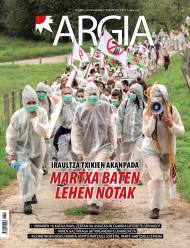

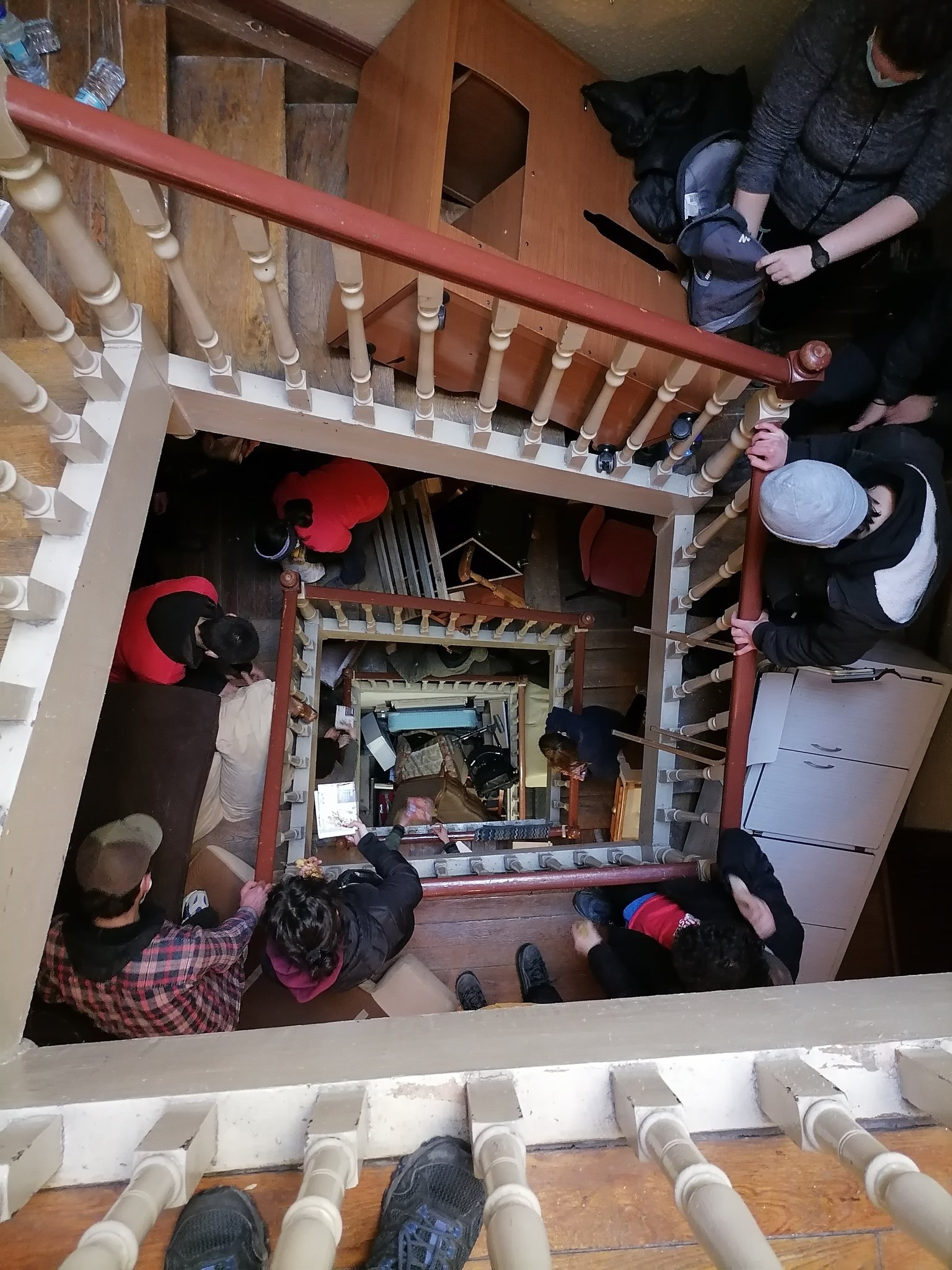







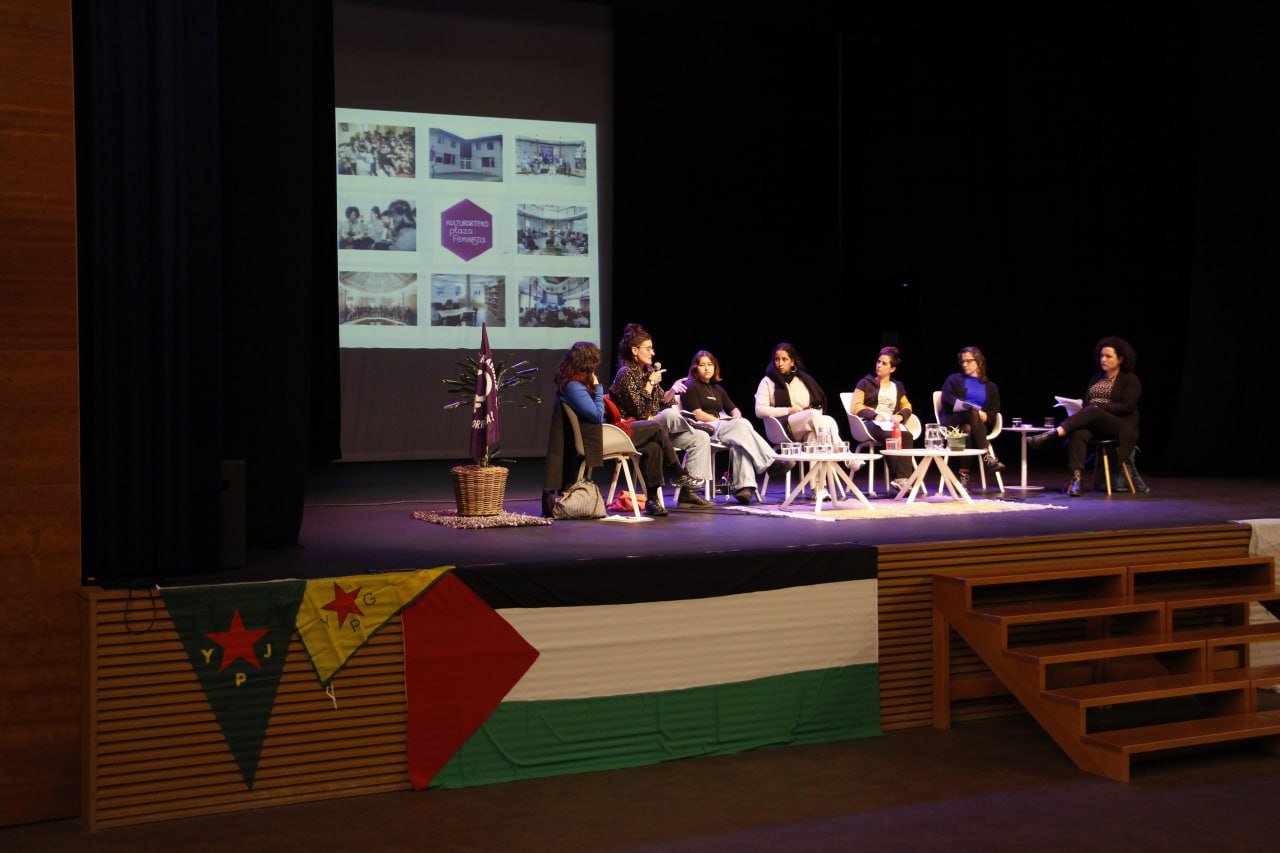
.png)

